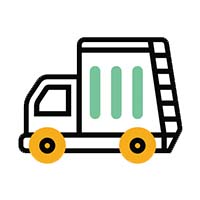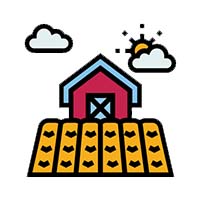Achieving Zero Food Waste: A State Policy Toolkit
Across the country, state leaders are advancing efforts to tackle food waste, and in turn responding to consumer demand, creating jobs and economic opportunities, ensuring food makes it to those experiencing food insecurity, and addressing environmental harms and climate change.
The Zero Food Waste Coalition created this state toolkit to similarly embolden officials and advocates from across the country to learn from others' successes and accelerate their own leadership and impact. It contains a range of tried and tested policy opportunities and model legislation that states can use to prevent food waste and keep food waste out of landfills and incinerators.
The target audience for this toolkit is state policymakers and advocates—whether their interest stems from concerns around climate change and environmental sustainability, financial responsibility, increasing food rescue, or finding opportunities to support local farmers, all of which can be achieved through policies described in this toolkit.
While this toolkit was drafted with this audience in mind, it may also be helpful to a wide range of individuals and groups interested in enacting legislation to tackle food waste at the local, state, or federal level.

Section 1
Building and Broadening Organic Waste Bans and Beyond
This section introduces policies to eliminate food waste from landfills. These policies include organic waste bans and mandatory organics recycling laws, food donation requirements, mandatory reporting laws that require entities to report on food waste generation to help develop data to support organic waste bans or planning for recycling infrastructure, and disposal surcharge fees that raise revenue for food waste diversion efforts like organic waste bans. This section includes:
Organic Waste Bans
Food Donation Requirements
Mandatory Reporting Laws
Disposal Surcharge Fees

Section 2
Opportunities to Promote Food Donation
This section introduces policies that can promote and incentivize the donation of food (aside from donation requirements highlighted in Section 1), including tax incentives, liability protection, and food safety for food donation. This section includes:
Liability Protections for Food Donation
Tax Incentives for Food Donation
Food Safety Guidance for Food Donation

Section 3
Supporting Organic Waste Processing Infrastructure
This section introduces a policy that can help states support and develop composting infrastructure to ensure there is sufficient capacity to recycle food scraps. This section includes:
Permitting and Zoning for Composting and Anaerobic Digestion Facilities
Recycling Food Scraps into Animal Feed

Section 4
Developing End Markets for Compost
This section introduces policies that can help states support end markets for finished compost products resulting from composting food scraps, to make the financial case for increased recycling of food scraps. This section includes:
Compost Procurement
Incentivize Compost Application

Section 5
Preventing Food Waste Upstream
This section outlines policies to prevent food waste upstream, including reforming date labels to prevent safe, wholesome food from being thrown away due to confusion. This section includes:
Date Labeling

Section 6
Other Governmental Action to Address Food Waste
This section outlines other governmental policies and actions that states can take to reduce food waste, including food waste efforts in K-12 schools, climate and solid waste action plans, and government grants and support. This section includes:
Food Waste Reduction in K-12 Schools
Climate and Solid Waste Plans
Government Support for Food Waste Reduction
Planning to use this toolkit in your state? We'd love to hear from you!